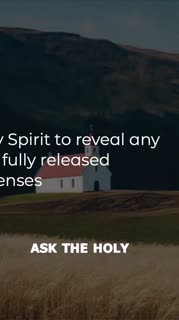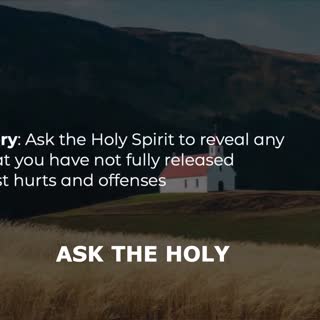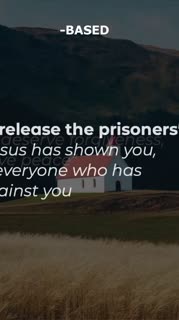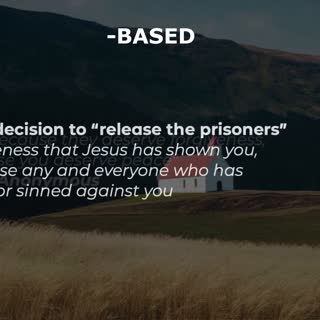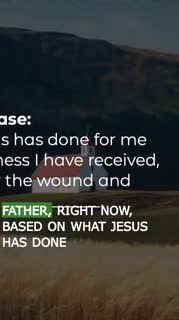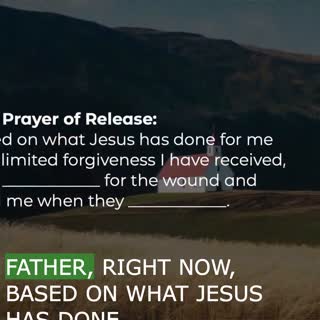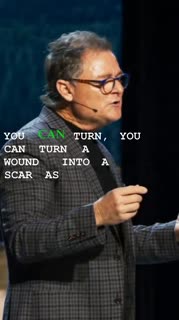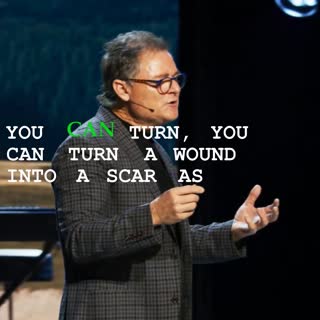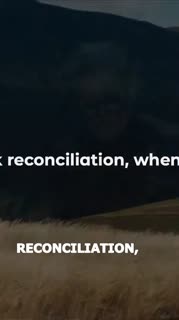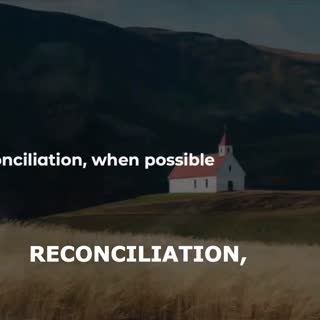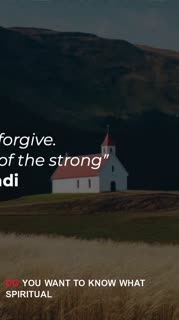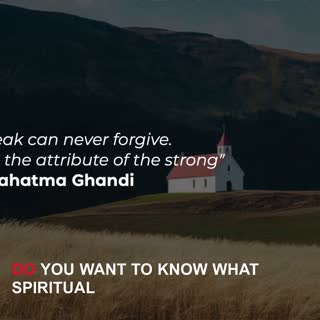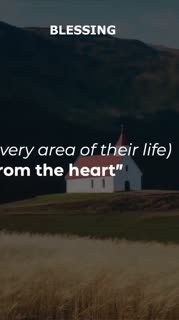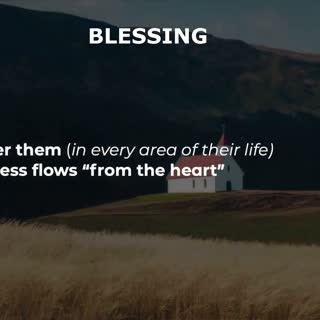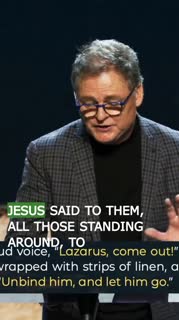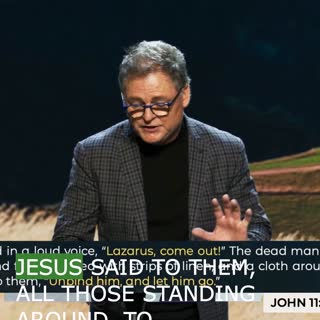Embracing Freedom Through Forgiveness and Community
Devotional
Sermon Summary
Bible Study Guide
Sermon Clips
"Ask the Holy Spirit to reveal any and everyone that you've not fully released from past hurts and offenses. You know, the tendency when we go through the wounds and hurts of life is to develop a mindset or say things like, oh man, I'm good. You know, that's water under the bridge. It happened a long, long time ago, right? I've moved on. When in fact, when you allow the Holy Spirit to examine your heart and you ask him to search your heart, you might find that there's still some snares that have gone off in your life." [00:05:09] (29 seconds)
"Make a faith-based decision to release the prisoners. Based on the forgiveness that Jesus has shown you, determine to release any and everyone who's offended or sinned against you. Let me be clear. This is a decision before it's an emotion. And as men and women of faith, ultimately, we are not moved by what we feel. We're not moved by what we see. We are moved by what we believe, amen?" [00:08:57] (26 seconds)
"Father, right now, based on what Jesus has done for me on the cross and the unlimited forgiveness I've received, I forgive and release. And then you're going to fill in the name or the names as many times as you need to do it. For the wound and pain they caused me when they fill in the event or the events. You might have quite a list. And then here's the declaration." [00:13:13] (21 seconds)
"You can turn, you can turn a wound into a scar as you go through the healing process. And you can live with some scars, but wounds will take you out. By the way, scars become trophies that you've overcome something." [00:15:39] (15 seconds)
"Seek reconciliation, key phrase, when possible. Now, before we read the words of Jesus, reconciliation is not always possible because it takes two willing parties to reconcile an offense and a relationship. It also requires the ability of the person who's been sinned against to face it and fully step into this process." [00:17:55] (22 seconds)
"Do you want to know what spiritual maturity looks like? Being a strong believer looks like? It's not the fattest Bible in the church or speaking in tongues really loud or senior at the house. Here's what spiritual maturity looks like and being strong in the Lord. It's Matthew 18." [00:19:03] (16 seconds)
"Pray blessing over them in every area of their life until forgiveness flows from the heart. There's a lot of verses in your Bible that are easy, easier read than lived. There's no, and I'm going to read you one in just a moment. But in our lesson last week about the torture of unforgiveness, Jesus said that the key was forgiveness from the heart." [00:28:52] (22 seconds)
"Jesus said to them, all those standing around, to Martha and Mary and his friends, unbind him and let him go. You unbind him. Here's the deal. Jesus does the heavy lifting. The Holy Spirit resurrects people's life, but then he looks at his body, and he says, okay, you take the grave clothes off of them." [00:37:20] (20 seconds)
Ask a question about this sermon
"Make a faith-based decision to release the prisoners. Based on the forgiveness that Jesus has shown you, determine to release any and everyone who's offended or sinned against you. Let me be clear. This is a decision before it's an emotion. And as men and women of faith, ultimately, we are not moved by what we feel. We're not moved by what we see. We are moved by what we believe, amen?" [00:08:57] (26 seconds)
"Father, right now, based on what Jesus has done for me on the cross and the unlimited forgiveness I've received, I forgive and release. And then you're going to fill in the name or the names as many times as you need to do it. For the wound and pain they caused me when they fill in the event or the events. You might have quite a list. And then here's the declaration." [00:13:13] (21 seconds)
"You can turn, you can turn a wound into a scar as you go through the healing process. And you can live with some scars, but wounds will take you out. By the way, scars become trophies that you've overcome something." [00:15:39] (15 seconds)
"Seek reconciliation, key phrase, when possible. Now, before we read the words of Jesus, reconciliation is not always possible because it takes two willing parties to reconcile an offense and a relationship. It also requires the ability of the person who's been sinned against to face it and fully step into this process." [00:17:55] (22 seconds)
"Do you want to know what spiritual maturity looks like? Being a strong believer looks like? It's not the fattest Bible in the church or speaking in tongues really loud or senior at the house. Here's what spiritual maturity looks like and being strong in the Lord. It's Matthew 18." [00:19:03] (16 seconds)
"Pray blessing over them in every area of their life until forgiveness flows from the heart. There's a lot of verses in your Bible that are easy, easier read than lived. There's no, and I'm going to read you one in just a moment. But in our lesson last week about the torture of unforgiveness, Jesus said that the key was forgiveness from the heart." [00:28:52] (22 seconds)
"Jesus said to them, all those standing around, to Martha and Mary and his friends, unbind him and let him go. You unbind him. Here's the deal. Jesus does the heavy lifting. The Holy Spirit resurrects people's life, but then he looks at his body, and he says, okay, you take the grave clothes off of them." [00:37:20] (20 seconds)
